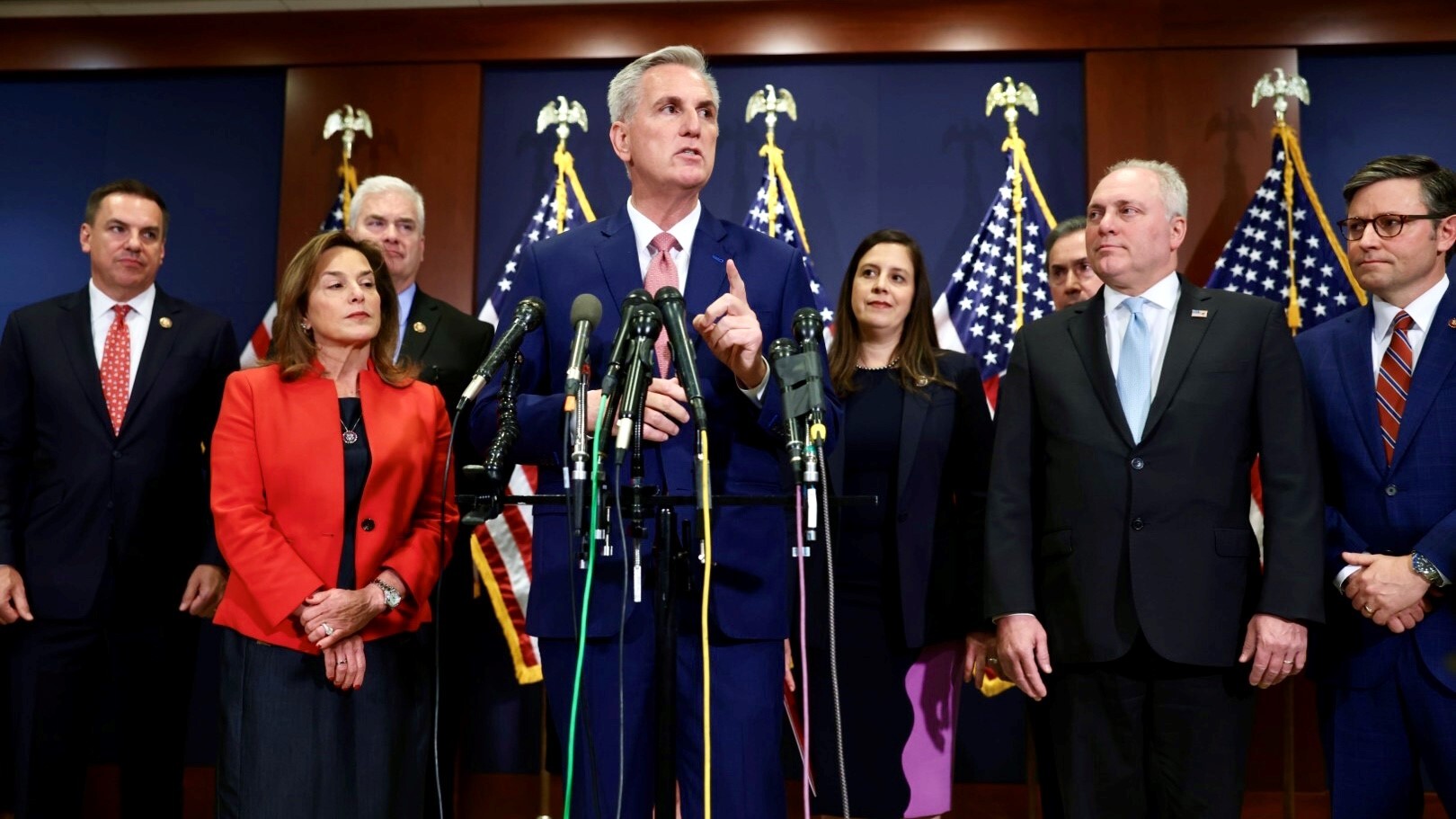

When the 118th Congress convenes on January 3, Republicans will officially gain control of the House of Representatives for the first time since 2019 marking the end of Democrats’ tumultuous two-year run with unified control of the White House, the House and the Senate that expanded the role of government.
This Congress adopted sweeping legislation and trillions in new spending. Highlights included razor-thin party-line votes to adopt both the $1.9 trillion American Rescue Plan Act and the Inflation Reduction Act that financed over $1 trillion in new spending (offset by tax increases and increases in IRS tax compliance). With bipartisan support, Congress passed the 10-year $1.2 trillion Infrastructure Investment and Jobs Act, the $52.7 billion CHIPS & Science Act, and the 10-year $400 billion Honoring our PACT Act. Collectively, this legislation expanded the federal government’s role in boosting R&D for clean, green energy, health and science, semiconductors and critical national security technology supply chains, increased resilience for America’s critical infrastructure, expanded veterans’ benefits, and the federal government’s financial support for state and local government.
House Republicans’ work begins immediately: Deliver on our Commitment to America; Hold this Administration accountable; Stop the Biden agenda.
House Republican Leader McCarthy
(R-CA), November 15
We don’t know the outcome of the December 6 Georgia Senate run-off or the final results in several closely contested House races, but the key 2022 election result headlines are clear: Democrats out-performed pundit prognostications losing the House by a narrower-than-expected margin and retaining control of the Senate. Politically, the big election night winners were Senate Majority Leader Schumer (D-NY), President Biden, and Governor DeSantis (R-FL). The biggest loser was Donald Trump.
The remaining election with the largest impact on the lame duck Congress is the one for Speaker of the House. The Speaker is the only Congressional leadership position elected by the full House. Last week, Kevin McCarthy (R-CA) became the presumptive Speaker following a 188-31 House Republican Conference vote. Because McCarthy needs 218 votes to become Speaker, we expect him to keep a low profile in the lame duck session as he works to shore up votes from Republican members who voted for his challenger.
FORECAST
<5% Odds of a December partial government shutdown
In FBIQ’s view, the election results and McCarthy’s situation do two things. They almost eliminate risk of a year-end government shutdown and increase the likelihood that FY23 Appropriations are finalized by the 117th Congress. All-of-the-above is consistent with FBIQ election forecasts dating back to October 2021.
FORECAST
>75% The 117th Congress approves full year FY23 Appropriations
As Austin Smythe detailed last month, the lame duck Congress faces a list of must-do items we call “The Usual Suspects.”
The central, action-forcing event is FY23 Appropriations. Since October 1, agencies have operated under a continuing resolution (CR) that expires at midnight December 16. While several rank-and-file Republicans have argued for extension of the CR into February or March 2023, adoption of full-year FY23 Appropriations is more likely. The big strategic decision for Congressional leaders is what to add to that package. Both Senate Majority Leader Schumer (D-NY) and President Biden appear inclined to load it up with a yet-to-be-determined disaster relief supplemental, emergency aid for Ukraine, emergency COVID funding, and a debt limit increase that would avoid a partisan budget dispute and a potential default next fall.
The items on that list with bipartisan support have the best chance for adoption. They include FY23 Appropriations, additional funding for Ukraine that includes full reimbursement to the Department of Defense (DOD) for weapons systems, equipment, and ammunition transferred from DOD stockpiles, and a major down-payment on disaster relief, particularly for the extensive damage inflicted on SW Florida by Hurricane Ian.
FORECAST
<20% A year-end spending deal includes a debt limit extension
As a practical matter, the only way the 117th Congress can extend the debt limit is as part of a broader package. In this scenario, the “Big Four” Congressional leaders, Schumer, and Senate Majority Leader McConnell (R-KY), Speaker Pelosi (D-CA) and McCarthy effectively retain veto power over the contents. While McConnell’s actions in the 117th Congress demonstrate that he has no interest in debt limit-default brinksmanship, it is unlikely that Republicans sign off on a debt limit deal that would limit opportunities for their members seeking spending and budget reforms in the 118th Congress.
Our December edition will include a “New Faces in New Places” section. Elections mark change and 2022 is no different. The most sweeping changes are for House Democrats. This week, Speaker Pelosi, House Majority Leader Hoyer (D-MD), and House Majority Whip Clyburn (D-SC) announced they will not seek leadership positions in the 118th Congress. After public negotiations over Biden’s Build Back Better agenda exposed rifts between the progressive and moderate factions in the House Democratic Caucus, it will be interesting to see who House Democrats select to lead them in 2023.
I will not seek re-election to Democratic Leadership in the next Congress. For me, the hour has come for a new generation to lead the Democratic Caucus that I so deeply respect.
Speaker Pelosi (D-CA),
November 17
We’ll also see a new generation of leaders in the Senate. With the retirement of Appropriations Committee Chairman Leahy (D-VT) and Vice Chairman Shelby (R-AL), Senator Murray (D-WA) is likely to become the first woman to Chair the Senate Appropriations Committee and the Senate’s first female President Pro Tempore. In the coming weeks, we also expect significant changes in the Administration as cabinet members depart. Finally, by mid-February, we expect President Biden to announce what may be the biggest decision impacting the 118th Congress. Will he seek re-election? Heading into November, odds were against another run, but both Democrats better-than-expected election performance and Trump’s entry into the race could alter Biden’s decision.